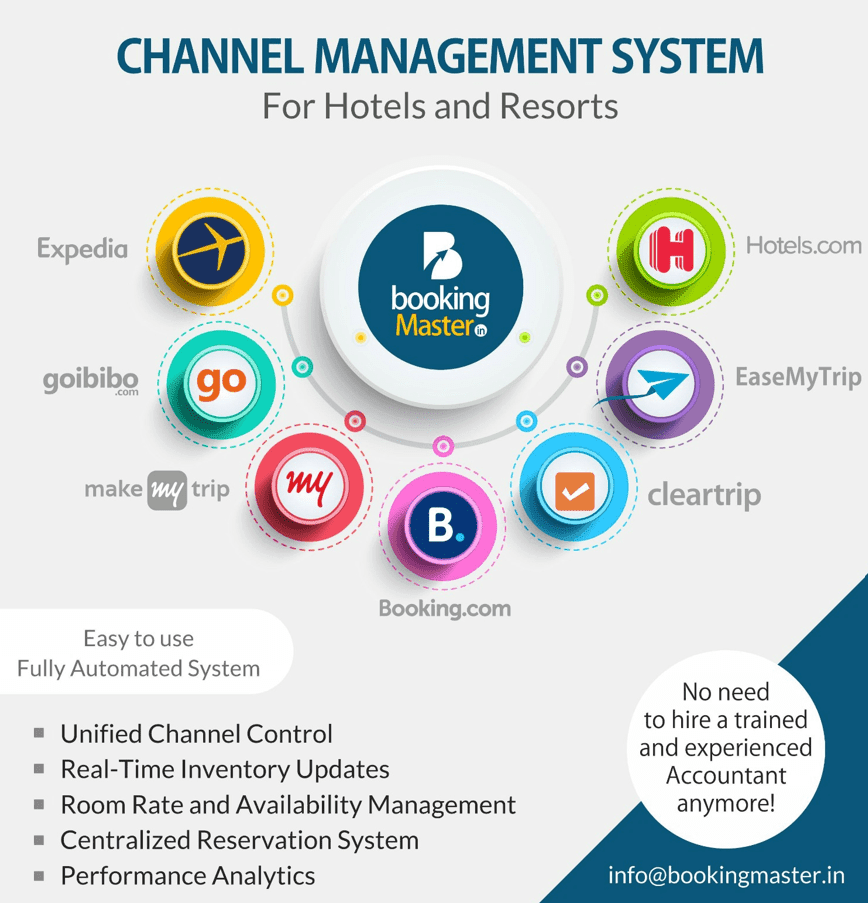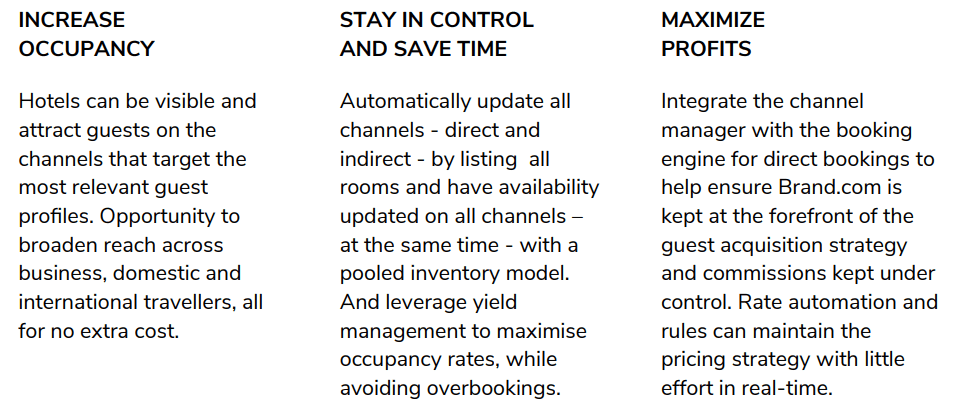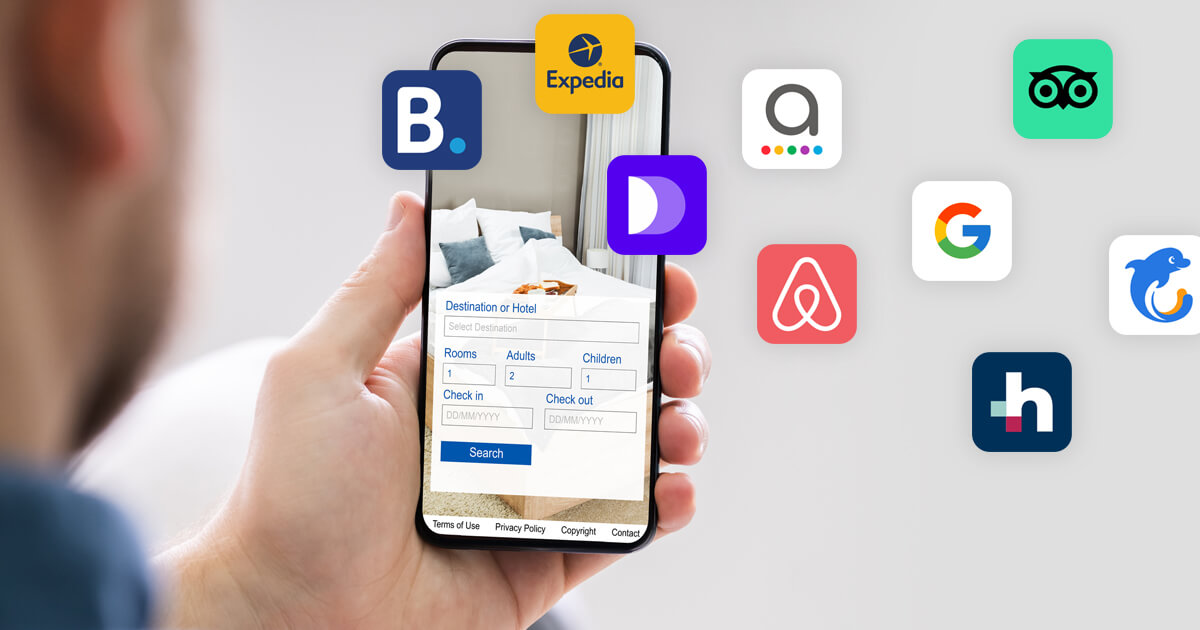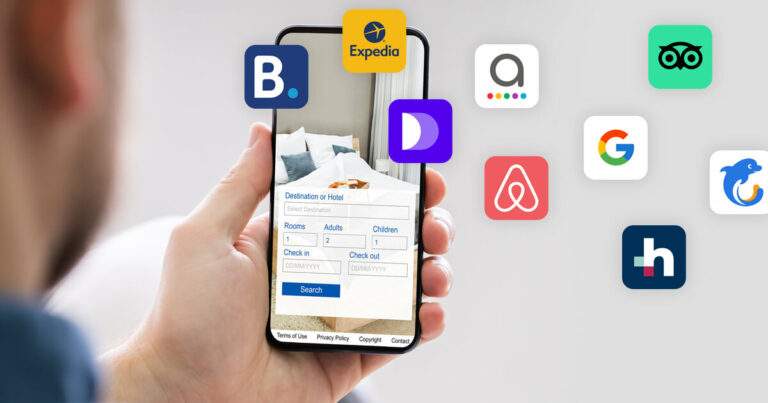Online travel agencies (OTAs) and booking platforms play a pivotal role in the success of hotels worldwide. These platforms provide a convenient way for travelers to book accommodations, offering a vast array of options and competitive prices. For hoteliers, establishing and nurturing strong relationships with OTAs is essential for maximizing visibility, driving bookings, and ultimately, increasing revenue. In this article, we’ll explore strategies and best practices for building stronger relationships with OTAs and booking platforms.
Understanding the Importance of OTAs
OTAs have transformed the way travelers research and book hotels. With the click of a button, potential guests can access a wealth of information about various properties, compare prices, read reviews, and make reservations—all from the comfort of their homes or mobile devices. As a result, OTAs have become a primary channel for hotel bookings, accounting for a significant portion of overall reservations for many properties.
Establishing Trust and Collaboration
Building a strong relationship with OTAs begins with establishing trust and fostering collaboration. Hoteliers should view OTAs as partners rather than adversaries, recognizing the value they bring in terms of visibility and reach. Here are some key strategies for cultivating positive relationships with OTAs:
- Transparent Communication: Open and honest communication is crucial for building trust with OTA representatives. Hoteliers should maintain regular contact with their OTA account managers, providing updates on inventory, pricing, promotions, and other relevant information. Transparency regarding room availability and rate parity is essential to avoid any discrepancies or misunderstandings.
- Offering Competitive Rates and Inventory: OTAs prioritize properties that offer competitive rates and a wide range of available inventory. Hoteliers should regularly monitor pricing trends and adjust rates accordingly to remain competitive in the market. Additionally, providing OTAs with access to a diverse selection of room types and packages can enhance the property’s appeal to travelers.
- Optimizing Content and Imagery: High-quality content and imagery can significantly impact a hotel’s performance on OTAs. Hoteliers should ensure that their property listings are optimized with accurate descriptions, appealing photos, and relevant amenities. Investing in professional photography and compelling written content can help differentiate the property from competitors and attract more bookings.
- Implementing Dynamic Pricing Strategies: Dynamic pricing strategies involve adjusting room rates based on demand, seasonality, and other factors in real-time. By leveraging data analytics and revenue management tools, hoteliers can optimize pricing strategies to maximize revenue while maintaining competitiveness on OTAs. Implementing discounts, promotions, and exclusive offers for OTA customers can also help drive bookings and enhance relationships with these platforms.
- Providing Exceptional Guest Experiences: Ultimately, the guest experience is paramount in driving positive reviews and repeat bookings through OTAs. Hoteliers should prioritize delivering exceptional service and personalized experiences to guests from the moment they book until check-out. Prompt responses to guest inquiries and requests, as well as proactive resolution of any issues or concerns, can help generate positive reviews and foster loyalty among OTA customers.
Leveraging Technology and Data Insights
In addition to the strategies mentioned above, hoteliers can leverage technology and data insights to strengthen their relationships with OTAs. Advanced channel management and distribution tools allow hoteliers to seamlessly manage inventory, rates, and bookings across multiple OTA channels in real-time. By integrating these tools with their property management systems (PMS) and revenue management platforms, hoteliers can streamline operations, minimize manual errors, and optimize revenue potential.
Furthermore, data analytics play a crucial role in understanding OTA performance, traveler behavior, and market trends. By analyzing key performance indicators (KPIs) such as booking conversion rates, average daily rate (ADR), and revenue per available room (RevPAR), hoteliers can identify opportunities for improvement and tailor their strategies to maximize ROI from OTAs. Additionally, guest feedback and review data obtained through OTAs can provide valuable insights for enhancing service quality and addressing areas for improvement.
Conclusion
Building stronger relationships with online travel agencies (OTAs) and booking platforms is essential for hoteliers looking to maximize visibility, drive bookings, and increase revenue. By prioritizing transparent communication, offering competitive rates and inventory, optimizing content and imagery, implementing dynamic pricing strategies, and providing exceptional guest experiences, hoteliers can cultivate positive partnerships with OTAs that benefit both parties. Leveraging technology and data insights further enhances the effectiveness of these strategies, enabling hoteliers to optimize performance and stay ahead in a competitive marketplace. Ultimately, by embracing collaboration and innovation, hoteliers can position their properties for long-term success in the dynamic world of online travel.
Booking Master’s Hotel Channel Manager
Booking Master’s Hotel Channel Manager is a comprehensive solution empowering hotelier to efficiently manage room availability, rates, and reservations across various online distribution channels. Acting as a centralized control hub, it synchronizes real-time updates across platforms like MakeMyTrip, Goibibo, Booking.com, and more, ensuring accuracy and efficiency in managing bookings. Seamlessly integrating with the Property Management System (PMS) and Online Booking Engine, it prevents the risk of overbooking and revenue loss by providing instant updates on inventory. With benefits including strategic alliances with OTAs, prevention of double bookings, unified channel control, and efficient rate management, it optimizes revenue streams while saving time and resources. Its user-friendly interface and seamless integration with PMS and CRM systems enhance operational efficiency, ultimately improving revenue management and guest satisfaction.
Want To Book A Demo? https://www.bookingmaster.in/contact/






